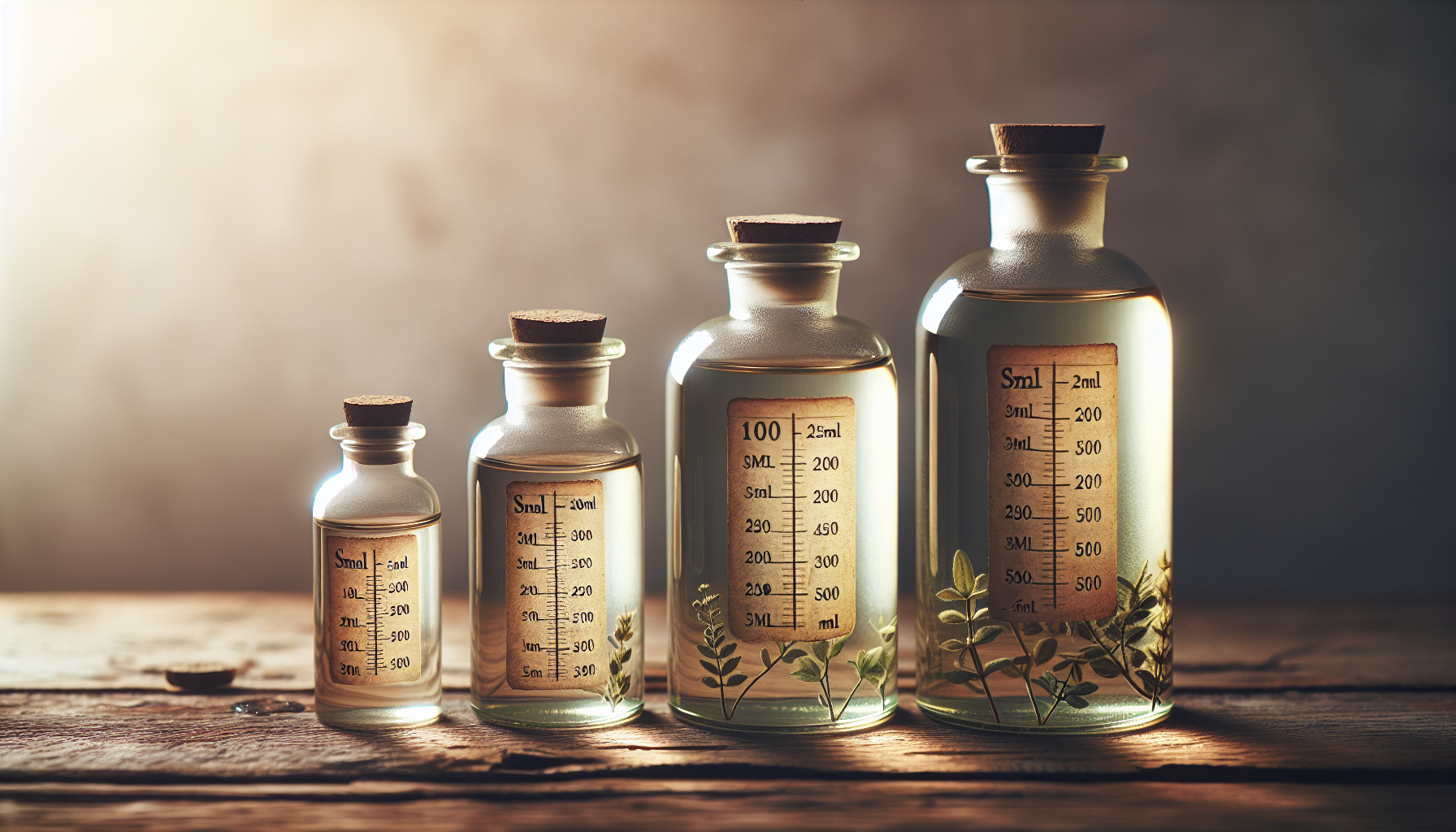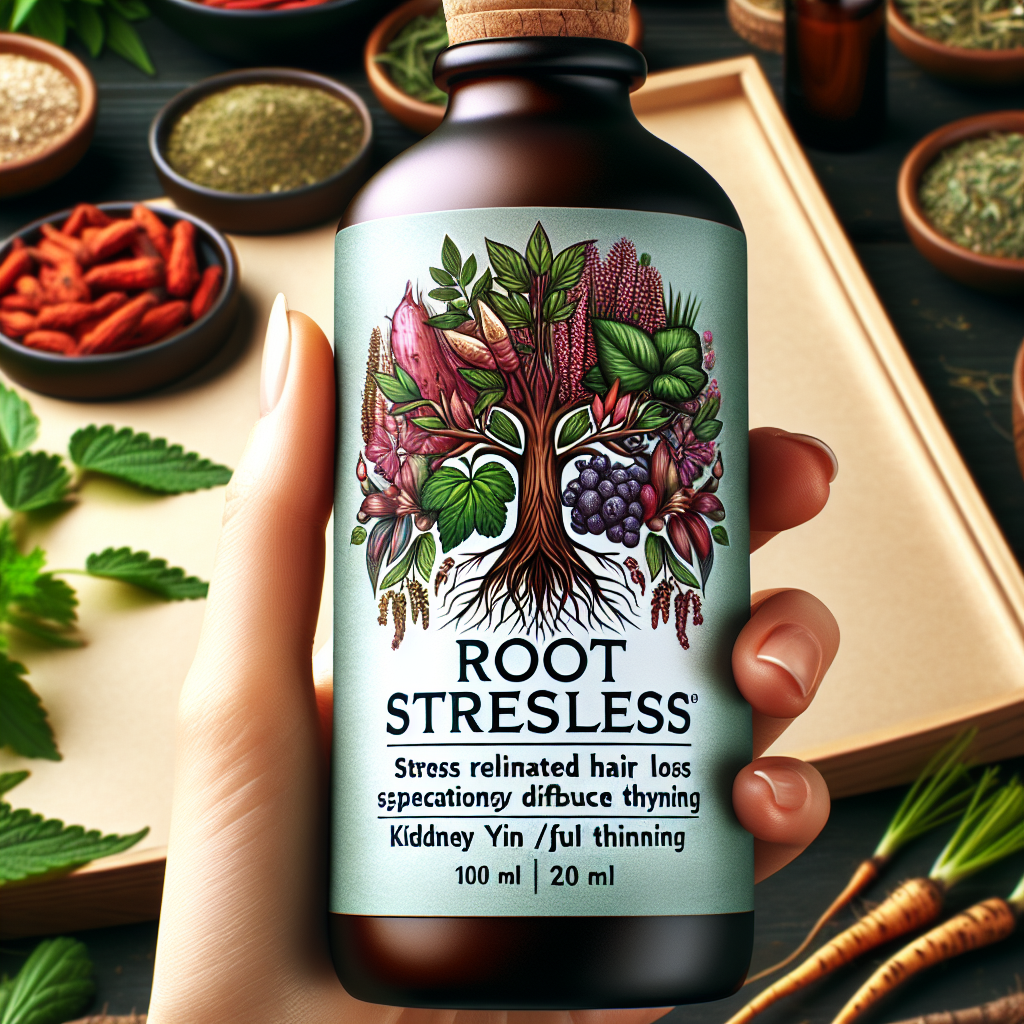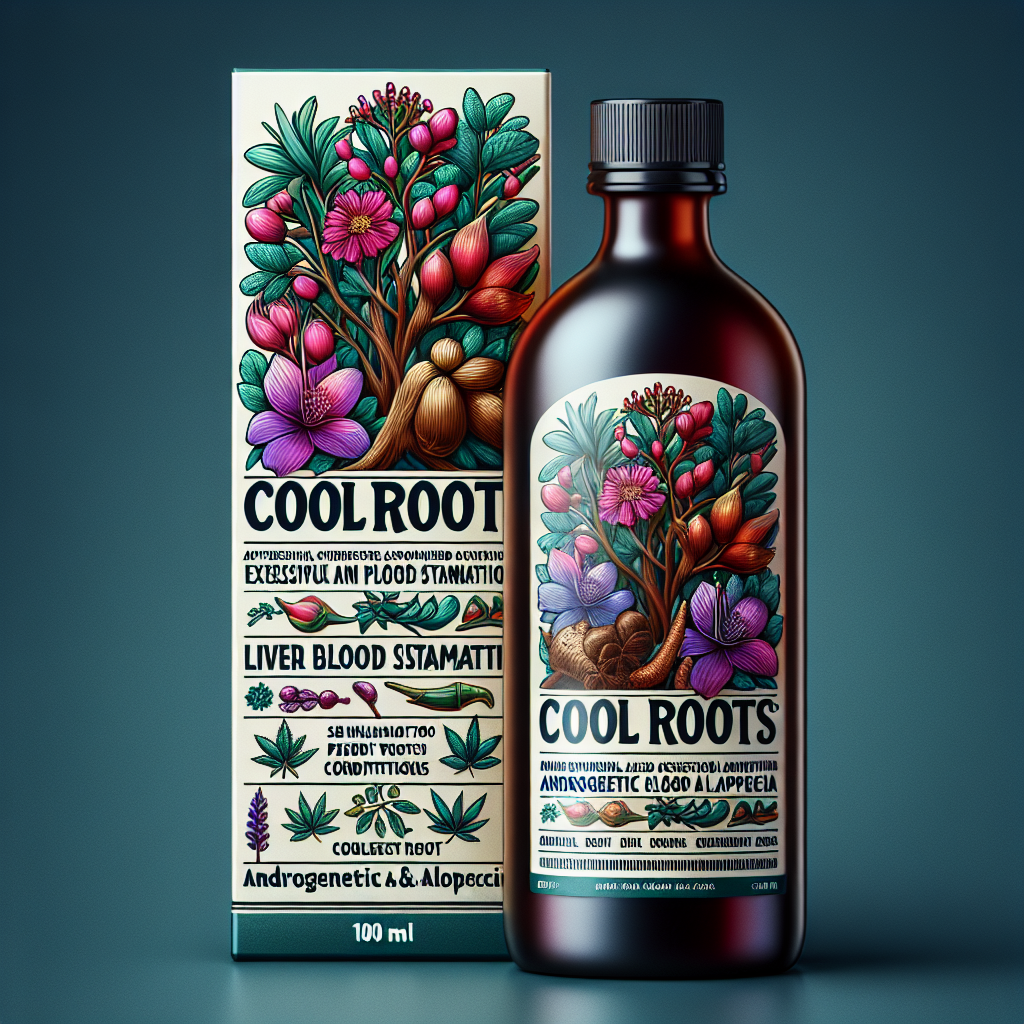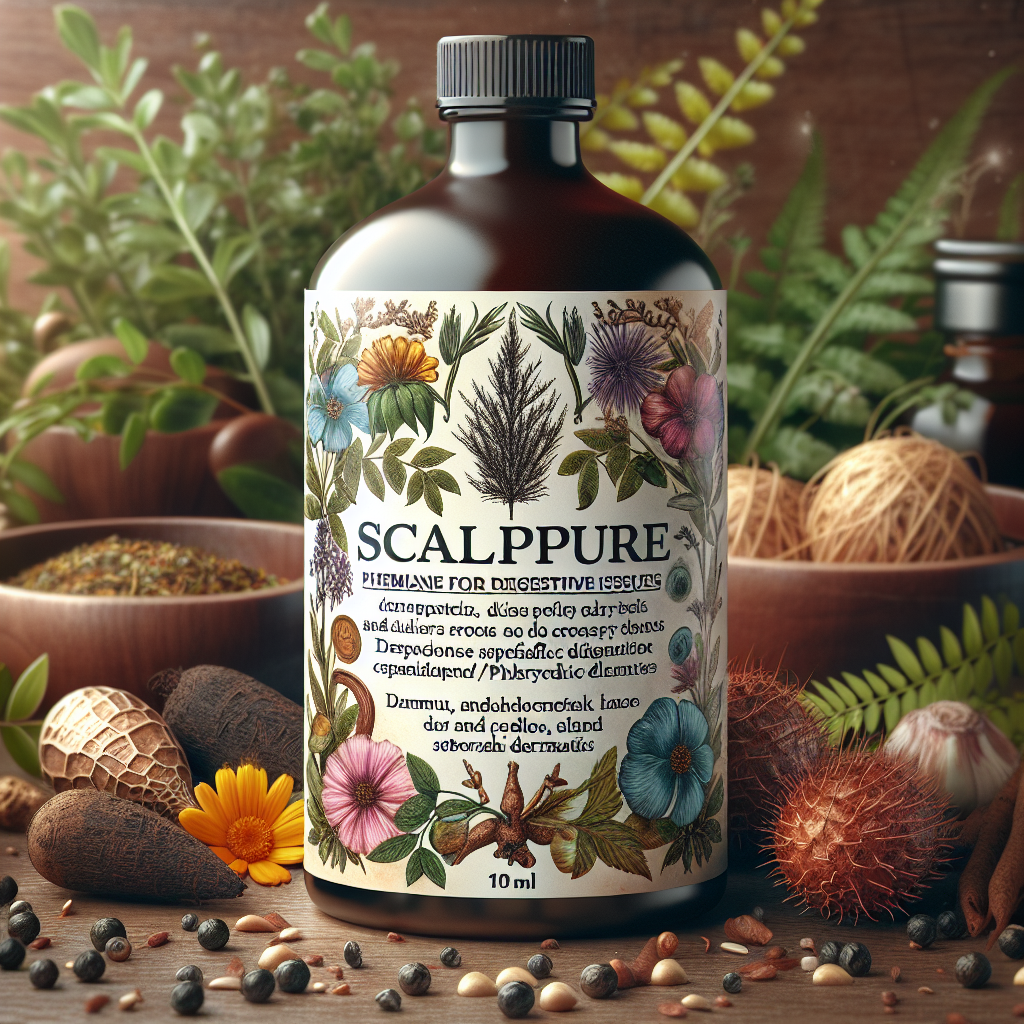4 Natural Remedies For Hair Loss...
Skintegratit - Best Treatment For Hair Loss - Natural Remedies For Hair Loss

Explore Dr. Hodis special formula and 3 more natural remedies for hair loss. Herbal formulas combining Western and Chinese traditions. Get tailored personalized approach...
These formulas are suggestions based on traditional uses and available research. In general, Dr. Hodis says, using herbal formulas is preferred because they offer many benefits. But...
It's usefull to consult with a qualified practitioner or herbalist for personalized advice and to rule out any underlying medical conditions. Also,
A well-analyzed symptom questionnarie can help you determine the best approach based on your individual constitution and health status. O.K. now,
Let's start with Dr. Hodis special formula. By the way...
All formulas comes in a liquid form, and tinctures are typically available in 100ml, 250ml or 500ml bottles. O.K. let's start...
Which formula is the right one for you?
"RootFortifier" / Dr. Hodis Special Formula to Stop Hair Loss...
This formula strengthens Qi and promotes Yang energy in the body. It nourishes Jing, detoxifies, and protects body cells. It builds and enriches the blood, facilitating blood flow to the hair and nourishing it. Moreover, it strengthens the hair, stimulates hair growth, and mitigates hair loss. It detoxifies and reduces skin inflammation. Additionally, it helps restore the nervous and endocrine systems, calming moods, stress, and anxiety. And best of all...
This formula is (almost) "suitable for all". It addresses various conditions known to cause damaged hair and hair loss.
"RootFortifier"
ROSEMARY LEAF – Rosmarinus off – MI DIE XIANG
BIRCH – Betula – HUASHU
EQUISETUM ARVENSE - horsetail - WEN JING
OAT BERRY AND STRAW – avena sativa -yanmai
NETTELE - urtica dioica – XIANMA
WATERCRESS – nasturtium off – SHUITTIAJIE
AMERICAN GINSENG ROOT - panax quinquefolia – XIYANGSHEN
Check out the detailed explanation of the selected medicinal plants

3 more natural remedies for hair loss, worth considering...
It's important to understand!
Connecting Traditional Chinese Medicine (TCM) concepts like "Kidney Yin Deficiency" for instance with Western medical diagnoses requires careful interpretation. While TCM offers valuable insights, direct correlations aren't always scientifically established in Western medicine. "Kidney Yin Deficiency" is a functional pattern in TCM, not a directly measurable physiological state in Western terms. So,
Why bother at all? What's in it for you?
The better the interpretation, the better your integration!
The details provided here regarding each formula, is based on both: personal experience and comprehensive research. Enabling you to select the most suitable remedy for your situation. Remember,
These formulas can be a great starting points. But always keep in mined,
A qualified practitioner can help you tailor a formula to your specific needs and monitor your progress.
Your journey to healthy hair is a personal one, and with the right support and knowledge, you can reclaim your vibrant crown! O.k...
Let's explore now the additional formulas and the symptoms they address...
Formula 1: "Root StressLess" - For Stress-Related Hair Loss with Dryness (Kidney Yin Deficiency/Diffuse Thinning)
This formula focuses on stress management and nourishing the Kidney Yin, which is often depleted in stress-related hair loss accompanied by dryness. It supports healthy blood flow to the scalp and promotes hair growth from within.
"Root StressLess"
Ashwagandha (Withania somnifera): Adaptogen, reduces stress hormones.
Nettle Root (Urtica dioica): Nourishes hair follicles, rich in minerals.
Goji Berries (Lycium barbarum): Nourishes Kidney Yin, supports blood flow.
He Shou Wu (Polygonum multiflorum): Tonifies Kidney and Liver Blood, promotes healthy hair growth and color.
Schisandra Berry (Schisandra chinensis): Adaptogen, protects Liver and Kidney Yin.

Image is for illustrative only
TCM symptoms addressed by "RootStresless" formula:
- Heat signs: These are often described as "empty heat" or "internal heat" and can manifest as afternoon or evening fevers, night sweats, hot flashes, or a feeling of warmth in the palms, soles, and chest.
- Dryness: Dry hair, dry mouth and throat, constipation, and reduced vaginal lubrication.
- Restlessness and insomnia: Difficulty falling asleep, waking up frequently during the night, or a general feeling of restlessness.
- Dizziness and tinnitus: Ringing in the ears and a feeling of lightheadedness.
- Lower back pain or weakness: A dull ache or weakness in the lower back, often worse in the evening.
- Sexual dysfunction: Decreased libido in both men and women.
- Regarding hair loss: Kidney Yin Deficiency contribute to hair loss, particularly if accompanied by Blood Deficiency. The Yin nourishes and moistens the hair. When Yin is deficient, the hair can become dry, brittle, and prone to breakage or thinning. This hair loss is often described as diffuse thinning rather than patchy loss.
Special Warnings/Side Effects: Ashwagandha may interact with thyroid medications. He Shou Wu may affect liver function in some individuals. Consult your healthcare provider if you have any concerns or pre-existing conditions.
Formula 2: "CoolRoots" - For Hair Loss with Excess Heat and Inflammation (Liver Blood Stagnation/Androgenetic Alopecia)
This formula addresses hair loss associated with heat and inflammation, often seen in androgenetic alopecia or patterns of Liver Blood stagnation. It combines DHT-blocking herbs with cooling and anti-inflammatory agents to create a balanced approach.
There's growing evidence suggesting a link between androgenetic alopecia (AGA) and inflammation along the DHT factor. Inflammation appears to play a contributing role in the progression of AGA.
"CoolRoots"
Saw Palmetto (Serenoa repens): May block DHT, a hormone implicated in hair loss.
Rosemary Oil (Rosmarinus officinalis): Stimulates hair growth, improves circulation.
Green Tea (Camellia sinensis): Rich in antioxidants, may protect hair follicles from damage.
Bupleurum (Bupleurum chinense): Soothes Liver Qi stagnation, reduces inflammation.
Peony Root (Paeonia lactiflora): Cools blood, reduces inflammation, supports Liver function.
Bergamot Rind (Citrus bergamia): Calming, anti inflammatory

Image is for illustrative only
TCM symptoms addressed by "CoolRoots" formula:
Physical Symptoms:
- Pain: Can manifest as sharp, stabbing, or distending pain, often in the ribs, chest, abdomen, or lower back. The pain may be fixed or migratory and can worsen with emotional stress.
- Headaches: Tension headaches, migraines, or headaches focused on the sides of the head are common.
- Menstrual irregularities: Painful periods (dysmenorrhea), irregular cycles, premenstrual syndrome (PMS) with irritability and breast tenderness, and dark or clotted menstrual blood can be indicators.
- Digestive issues: Bloating, abdominal distension, nausea, and alternating constipation and diarrhea can occur.
- Skin problems: Dry skin, itchy skin, rashes, and easy bruising are sometimes seen.
- Muscle tightness or spasms: Especially in the neck, shoulders, and back.
- Visual disturbances: Blurry vision, floaters, or dry eyes.
Emotional Symptoms:
- Irritability: A short temper, frustration, and easily becoming angered are common.
- Depression: Liver Blood Stagnation can contribute to feelings of sadness, low mood, and lack of motivation.
- Anxiety: Restlessness, nervousness, and difficulty relaxing are often experienced.
- Mood swings: Emotional volatility and unpredictable shifts in mood can be a sign.
Androgenetic Alopecia and Liver Blood Stagnation:
Yes, we know... the concept of "Liver Blood Stagnation" comes from Traditional Chinese Medicine (TCM) and doesn't have a direct equivalent in Western medicine. While Western medicine recognizes the liver's crucial role in detoxification and blood filtering, the idea of "stagnation" isn't a recognized pathological mechanism. However,
When you understand the potential overlapping concepts between the TCM perspective of Liver Blood Stagnation and the Western understanding of AGA and inflammation, Yow win twice...
You become knowledgeable. And...
You skip the frustration of unsuccessful "miracle".
You're building your path to get successful. Getting tailored integrated treatment and natural remedies for your hair loss. O.k..
So let's gain this knowledge now...
Inflammation and Detoxification: In TCM, Liver Blood Stagnation can lead to a buildup of toxins, which could manifest as inflammation. This systemic inflammation can exacerbate existing inflammation around hair follicles in individuals predisposed to AGA.
Hormonal Regulation: The liver plays a role in metabolizing hormones, including androgens like DHT, which are central to AGA. TCM views Liver Blood Stagnation as potentially disrupting hormonal balance. If the liver isn't functioning optimally, it can affect DHT levels, potentially influencing AGA progression.
Stress and Emotional Factors: TCM often associates Liver Blood Stagnation with stress and emotional factors. Western medicine also recognizes the link between stress and inflammation. Chronic stress can elevate cortisol levels, which can promote inflammation and potentially worsen AGA.
Nutrient Delivery: Healthy blood flow is essential for delivering nutrients to hair follicles. TCM suggests that Liver Blood Stagnation can impede this flow. While Western medicine doesn't frame it as "stagnation," poor circulation can certainly affect nutrient delivery to hair follicles, potentially contributing to hair loss.
Special Warnings/Side Effects: Saw Palmetto may interact with blood thinners. Consult your healthcare provider if you have any concerns or pre-existing conditions.
Formula 3: "ScalpPure" - For Hair Loss with Greasy Scalp and Digestive Issues (Damp Heat and Phlegm/Seborrheic Dermatitis)
Yes, hair loss with a greasy scalp and digestive issues can be associated with Dampness and Phlegm in Traditional Chinese Medicine (TCM). Dampness and Phlegm are considered pathological substances that accumulate in the body due to imbalances in the Spleen and other organ systems. Therefore...
This formula addresses hair loss associated with a greasy scalp and digestive issues. How?
It combines herbs that detoxify and dry dampness with those that soothe scalp irritation and support healthy digestion.
"ScalpPure"
Burdock Root (Arctium lappa): Detoxifies, supports healthy scalp.
Butternut Bark (Juglans cinerea) - Alterative, Detoxifying, Clearing Damp-Heat
Cleavers (Galium aparine) - Clear heat and remove toxicity
Poria (Poria cocos): Dries dampness, strengthens Spleen.
Citrus (Citrus reticulate): Harmonizing Qi, Drying dampness and transforming phlegm
Bergamot Rind (Citrus bergamia): Calming, anti inflammatory

Image is for illustrative only
TCM symptoms addressed by "ScalpPure" formula:
General Symptoms:
- Feeling of heaviness: This can manifest as a heavy head, limbs, or body overall. A sensation of sluggishness and lack of energy is common.
- Swelling or edema
- Sticky or greasy sensations: This can be experienced on the skin, in the mouth, or with bodily secretions.
- Mucus discharge: This can include a thick, sticky coating on the tongue, excessive phlegm in the throat, or nasal congestion.
- Difficulty concentrating or "brain fog": Dampness can cloud the mind and impair cognitive function.
Digestive Symptoms:
- Bloating and abdominal distension: Dampness impairs the Spleen's ability to transform and transport food, leading to stagnation and gas.
- Poor appetite: The digestive system becomes sluggish, reducing the desire for food.
- Loose stools or diarrhea: Dampness can interfere with proper bowel movements.
- Nausea and vomiting: In more severe cases, Dampness can lead to nausea and vomiting.
- Indigestion and heartburn: Dampness can obstruct the flow of Qi, leading to digestive discomfort.
Scalp and Hair Symptoms:
- Greasy or oily scalp: Dampness and Phlegm can manifest as excessive oil production on the scalp.
- Dandruff: This can be a sign of Damp Heat, a combination of Dampness and Heat.
- Hair loss: Dampness can clog the hair follicles and impede the flow of nutrients to the hair roots, contributing to hair loss.
- Itching and irritation: Damp Heat can cause inflammation and itching on the scalp. scratching the scalp can lead to inflammation around hair follicles that could potentially cause to hear loss.
Other Symptoms:
- Joint pain and stiffness: Dampness can obstruct the flow of Qi and Blood to the joints, causing pain and stiffness.
- Skin issues: Dampness can contribute to various skin problems, such as eczema, acne, and fungal infections. If your suffering from eczema with your hair loss you might want to check out the holistic treatment for eczema by Dr. Hodis. You might find there a more tailored natural remedy to your condition.
- Sleep disturbances: Dampness can interfere with sleep quality, leading to difficulty falling asleep or staying asleep.
Hair Loss with a Greasy Scalp and Digestive Issues: As you can see, the combination of hair loss with a greasy scalp and digestive issues aligns with the symptoms of Dampness and Phlegm. The greasy scalp reflects the accumulation of Dampness and Phlegm on the skin, while the digestive issues point to a weakened Spleen, the organ responsible for transforming and transporting fluids in the body. This impaired Spleen function contributes to the accumulation of Dampness, which can then affect the scalp and hair.
Special Warnings/Side Effects: These herbs are generally well-tolerated, but consult your healthcare provider if you have any concerns or pre-existing conditions.
Valuable Info & More Resources For Hair Loss
Best Treatment for Hair Loss - Skip the miracle, Get knowledgeable, Be successful... Forget miracle cures, make informed decisions. Address the root cause of hair loss by understanding the various diagnoses and treatments and create a personalized strategy for success within the 3-WCP approach: Western-Herbal medicine, Chinese medicine, and non-prescribed hair-growth Preparations
National Institute of Health's National Center for Complementary and Integrative Health (NCCIH): the NCCIH provides evidence-based information on complementary and alternative medicine, including herbal remedies and acupuncture for hair loss. Their website (nccih.nih.gov) offers research summaries, fact sheets, and links to relevant scientific studies. Look for information on specific herbs mentioned, like saw palmetto, nettle root, and ginseng, as well as acupuncture for hair loss.